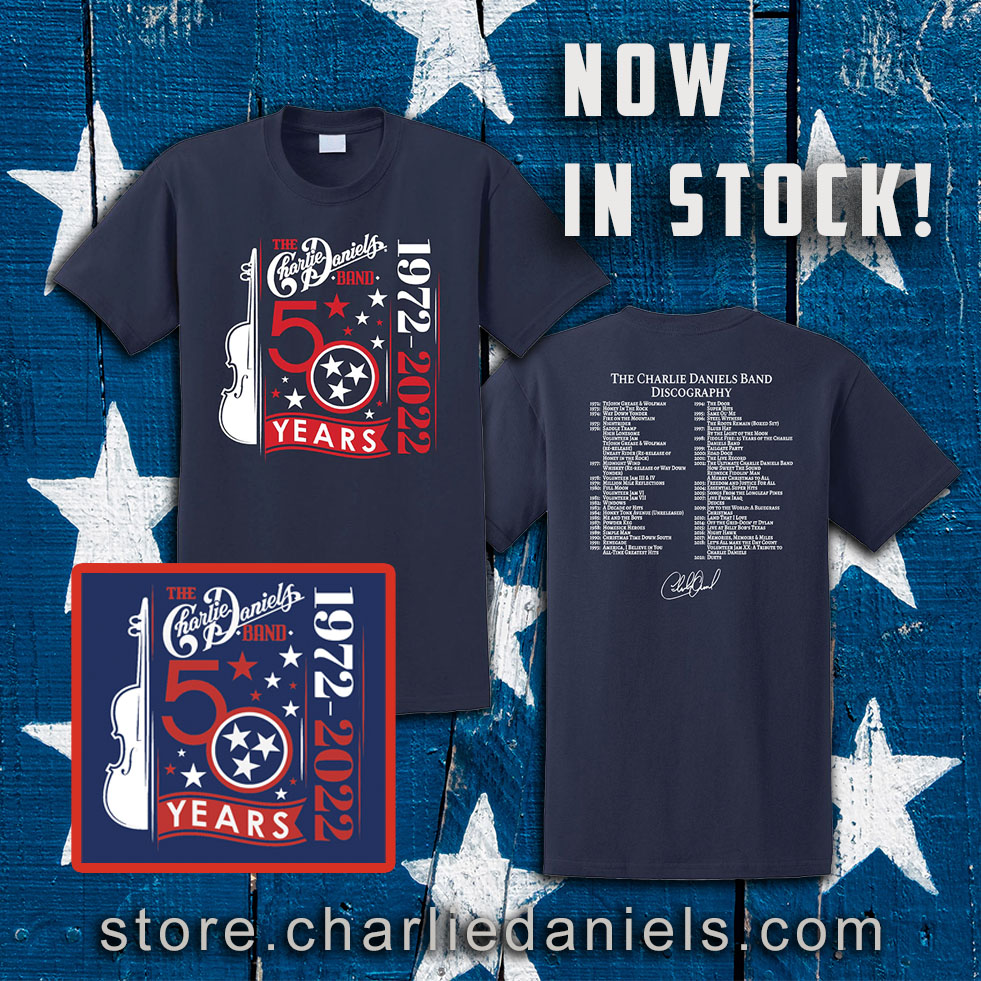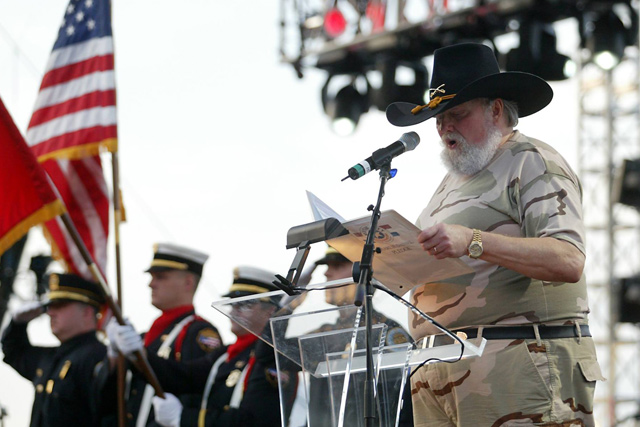That’s Been Fifty Years Ago… 50 Years of the CDB Part 3: Honey in the Rock/Uneasy Rider - Soapbox, Jr.
In 1973, dad was still a struggling musician still waiting for that first big hit song, and he finally got it.
The follow-up to ‘Te John, Grease and Wolfman,’ was titled ‘Honey in the Rock,’ and was also released on Kama Sutra Records.
Stylistically, the two albums are similar in nature, but with one big difference… there was a hit song from it.
This was another album I grew up with, so I remember it well.
The lineup was mostly the same as the previous one, but with Buddy Davis and Freddie Edwards coming aboard to play drums. Dad would continue to use two drummers until around 1983.
The first song “Funky Junky” - as I mentioned last time - was previously recorded for the Roy Buchanan album ‘The Prophet.’ This version is closer to the Roy Buchanan version than the later recording on ‘Nightrider,’ This is a song I was too young to understand, I had no idea what a junkie was or what it was to have a “monkey on his back,” but it was fun to sing because the title rhymed.
Next is “Big Man” a bit of a character study with a funky groove, lots of Taz’s B3 and some fiddle licks that foreshadow the devil’s solo just a few years later.
Next is “Why Can’t People” which is very much a product of the Vietnam era, questioning why people can’t just be good people and leave each other alone, and just get along. It also seems to touch on racial strife from the early 1970s as well, teaching children to love each other as God’s children from early on and even emphasized with what sounds like a black Gospel choir on the backing vocals, as well as some “churchy” organ from Taz.
The last song on the first side is “Revelations.” Even though this is a secular album, the song could almost fit into one of dad’s two Christian albums, ‘The Door’ or ‘Steel Witness’ as it paints a picture of the signs which are pointing to the return of Jesus, the Children of Israel returning to their homeland, and the “day is dawning” and to “heed the warning.”
Side two starts off with dad’s first official hit song. “Uneasy Rider” it’s a “talking blues” style song in that the phrasing and rhyme schemes follow a pattern like Johnny Cash’s recording of Shel Silverstein’s “A Boy Named Sue,” Alan Jackson’s recording of Dennis Linde’s “Talking Song Repair Blues,” many songs by Woody Guthrie or any number of Bob Dylan’s early songs.
“Uneasy Rider” takes its name from the Peter Fonda movie, “Easy Rider” – actually, it’s poking a little fun at it - which is also about a trip by counterculture hippies whose cross-country trip takes them through the south, but in “Easy Rider,” it’s motorcycles instead of a Chevrolet with peace signs and mag wheels.
In dad’s book, “Never Look at the Empty Seats,” he tells the real story behind “Uneasy Rider.” Thanks to his friendship with Bob Johnston, dad produced an album for the Greenwich Village-based band, The Youngbloods, and was working on a live record with them which was to partially be recorded at a music festival in Baton Rouge, LA.
Because of the events of the “Easy Rider” movie, many of the “longhaired hippie-type” bands were uneasy about being in the south. Dad, having grown up in the south thought their concerns were humorous and he wrote the song in response. If you look deeply at the song, yes, the rednecks in the song get made fun of, but it’s also kind of humorous that the character telling the tale thought he had to come up with outlandish tales to keep from coming to blows with the citizens of Jackson, Mississippi.
And if you’ve ever wondered about why there were “three of them and only one of me” when clearly “five big dudes” and “a feller with green teeth” enter the bar, the simple fact is that dad miscounted when he sang that part. In later live recordings, he restored the two extra big dudes.
I almost forgot one aspect of the song, the line "their heads were on fire and their asses were catching" had the word asses bleeped on the 45 so that was the version that most people heard since that's what radio stations played.
The song hit top ten - peaking at #9 - but unfortunately, it was seen as a “novelty song” and the airplay didn’t translate into record sales, but dad was making a name for himself one step at a time.
Following “Uneasy Rider” is “Midnight Lady,” a song with some screaming guitars about a man’s infatuation with his woman whom he only sees at night, It’s a pretty racy song, some of the imagery is highly suggestive, and curiously there’s a couple of lines that remind me of “Gimme Shelter” by The Rolling Stones.
And then just like that with something as risqué as “Midnight Lady,” dad takes us back to church with the inspirational “Somebody Loves You.” Definitely good music for the hurting soul.
“No Place to Go” finishes out the side and the album. This is the longest track at 10 minutes 13 seconds. This is a rockin’ track, but to me the definitive version is the live version from ‘Fire on the Mountain’ which is even longer. It’s about a man who’s been going through hell and back, and has had a long streak of bad luck in his life:
“When a man hits the bottom,
One thing I know,
Ain’t no place left to go”
Listening to the original of “No Place to Go” so many years later, the one thing that really stands out to me is dad’s vocals. He was still trying to find his authentic voice and you can tell there is a bit of an affectation instead of the voice he would become known for, just pure Charlie Daniels.
I do have to say something about the cover. The gatefold album was a matte finish meaning it’s not slick like most album covers are and were at the time, but on the inside of the gatefold of the album is a picture of the band on a train caboose in Centennial Park in Nashville. But there were a few choice words of graffiti on the caboose, including one that ends with “uck” starts with “F” and it’s not “Firetruck.” When we got promo copies, I remember mom thinking that she couldn’t send copies to family with the dreaded “F-word” on the back, so mom - being the resourceful woman that she is - bought art charcoal and since the album was a matte finish, the charcoal covered the offensive word nicely.
As with ‘Te John, Grease and Wolfman,’ CBS/Epic reissued the album in 1976 with a completely different cover – a painting of dad - and this time they even changed the title to ‘Uneasy Rider,’ no doubt to tie it back to the single.
The next album is very personal and there were a lot of changes afoot. Be here next time for “Way Down Yonder” aka “Whiskey.”
What do you think?
Pray for our troops, our police, the Peace of Jerusalem and our nation.
God Bless America!
#BenghaziAintGoingAway #End22
— Charlie Daniels, Jr.
PLEASE READ BEFORE YOU POST
Feel free to comment on soapboxes, but please refrain from profanity and anonymous posts are not allowed, we need a name and you MUST provide a valid email address. If you provide an email address, but leave the name as "Anonymous" we will pick a name for you based on your email address. No one other than website administrators will see your email address, not other posters. If you post without a valid email address, your comment (whether positive or negative) will be deleted. — TeamCDB

Check out "Geechi Geechi Ya Ya Blues" from Beau Weevils - 'Songs in the Key of E'







Comments
Post a CommentComments
Posted by Plowboy
Posted by Jeff
Posted by Stacy
Posted by RaccoonMan